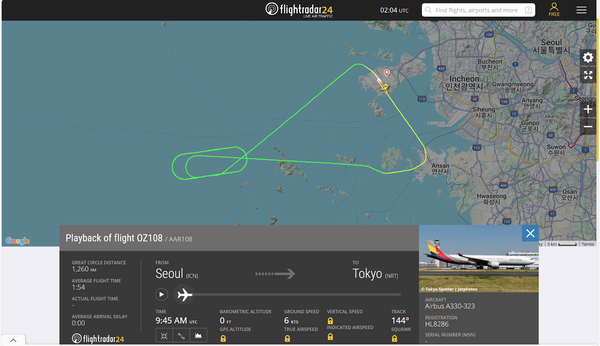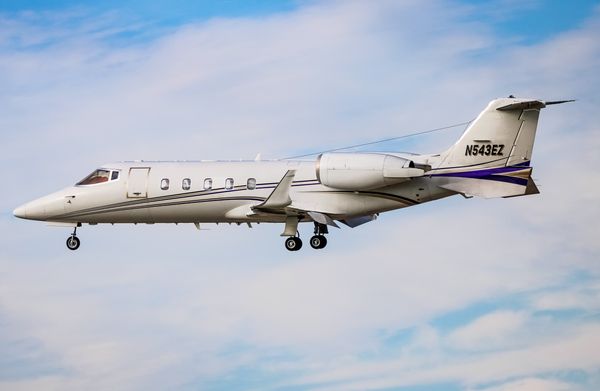On February 26, U.S. regulators released an assessment of Boeing's safety measurements and company culture. The report pressured the company since it had already dealt with the aftermath of the Alaska Airlines incident in January and the two fatal crashes in 2018 and 2019 involving the 737 MAX 8 jet. The expert panel stated, "A lack of awareness of safety-related metrics at all levels of the organization."
The Report
A panel of experts assembled by the Federal Aviation Administration (FAA) mentioned that the manufacturer was criticized for ineffective procedures and the disconnect of communication between the senior management and the other staff members.
Stability and rigid procedures are crucial to the structuralization of a company. Considering this aspect, the report has stated that changes in the complex procedures and training led to confusion. Lack of other needed elements negatively affected the employees' understanding of their position in Boeing's general management, considering safety. These outcomes were according to the report mandated by U.S lawmakers.
Rich Plunkett, a member of the expert review panel and director of strategic development for the union representing Boeing's engineers, said: "I really hope this is a wake-up call to the Boeing Company."
The 50-page report underscores the work still to be done at Boeing despite the company's efforts to develop its safety measures after the fatal crashes of 737 MAX in 2018 and 2019, which killed 346 people. Boeing has placed a new chief aerospace safety officer position and adopted a more refined systematic approach to addressing potential risks. This method is known as a safety management system combined with other actions.
Yet the findings highlight that Boeing is still struggling with a more fundamental concern: executives on the other side of the country are receiving bad news from its factory. FAA stated that they will thoroughly review the report and "determine next steps regarding the recommendations as appropriate." It also added: "We will continue to hold Boeing to the highest standard of safety and will work to ensure the company comprehensively addresses these recommendations."
Distrust and Lack of Information
Surveys portrayed that many Boeing employees were unaware of how to state potential safety issues or did not utilize the "Speak Up" program the company set following a 2019 grounding of the 737 Max aircraft prompted by two fatal crashes. After the incident of the Boeing 737 Max 9 plane's door blowing open during an Alaska Airlines flight, Boeing management has encouraged employees to share their thoughts and concerns about safety.
Boeing CEO David Calhoun stated in a message to employees on January 31:
"Our people on the factory floor know what we must do to improve better than anyone. We should all seek their feedback, understand how to help and always encourage any team member who raises issues that need to be addressed. We will go slow, we will not rush the system, and we will take our time to do it right."
The report also stated:
"Employee interviews revealed distrust in the anonymity of the Speak Up program, which questions the effectiveness of this reporting program. Ultimately, employees prefer to report safety issues to their managers."
The panel requested further information from Boeing that demonstrated its commitment to safety measures. According to the report, the received materials "did not provide objective evidence of a foundational commitment to safety that matched Boeing's descriptions."
The work on the safety culture report began in March 2023. The requirement for the report carried out by Congress in the 2020 Aircraft Certification, Safety & Accountability Act is to direct the FAA to gather experts to curate the practice of determining the company employees to act as federal inspectors.
Conclusion
The FAA panel issued 53 recommendations. The recommendations were based on a review of thousands of company documents and more than 250 interviews, each being at least an hour. The report mainly focuses on general policies and procedures that Boeing could improve rather than getting into details of specific failures. It called on the aircraft manufacturer to review its recommendations in six months and develop a plan to address them.
From the Society of Professional Engineering Employees in Aerospace, Plunkett stated in an interview:
"What do I hope comes out of this? That Boeing stops attacking its employees," and added, “That's your source of excellence. Embrace them, including those represented by unions. Quit fighting them for the sake of profits.”
The recommendations include:
- Better communication between all staff.
- Assuring their employees' anonymity will be protected for their feedback about their concerns and problems.
- Enhancing the structuring of the language Boeing uses to reinforce safety.
The alteration and transformations made to Boeing's delegated authority program helped to shield workers from intervention or punishment, but the panel discovered that there was still potential for retaliation. The panel also concluded that Boeing has to consider pilot input more when designing and operating aircraft.
Another FAA investigation is underway to decide if Boeing failed to ensure planes leaving the factory are compatible with the measures of design and safety standards. FAA has also blocked Boeing from increasing the production rates of its cash-cow jetliner until the manufacturer satisfies the quality control levels.

Calhoun made various public apologies to suppress the criticism from regulators, lawmakers, and customers. He has decided to slow down on the factory output, communicated with the management, and withheld financial guidance for this year as he works on stabilizing Boeing's factories.
On Boeing's official website, Calhoun's statement under the section "Alaska Airlines Flight 1282 and the 737-9" says:
"Whatever final conclusions are reached, Boeing is accountable for what happened. An event like this must not happen on an airplane that leaves our factory. We simply must do better for our customers and their passengers. We are implementing a comprehensive plan to strengthen the quality and the confidence of our stakeholders. It will take significant, demonstrated action and transparency at every turn – and that is where we are squarely focused."
Boeing said in a statement that it supported the panel's work and acknowledged the output, while it had taken "important steps" to enhance its safety culture, "there is more work to do."
Comments (2)
 Al Nonnamus
Maybe the FAA should give Boeing 90 days drop required safety meetings. 90 days to identify needless and redundant reporting like Safety Management Systems. The FAA was sold on SMS by safety vendors worldwide. Airlines, manufactures, and business have had to replace homemade safety programs that worked with SMS.
Not having a SMS doesn’t mean that you are not safe. The safety value of SMS is measured in ‘feel good’ terms. The data doesn’t look like a crisis requiring revamping current safety libraries. A ramp agent was killed placing orange safety cones.
The FAA’s alignment with ICAO has produced much increased administration and administrators for the United States! ICAO should align with FAA/NTSB instead. Brightly colored vests and safety cones are ICAO safety.
Al Nonnamus
Maybe the FAA should give Boeing 90 days drop required safety meetings. 90 days to identify needless and redundant reporting like Safety Management Systems. The FAA was sold on SMS by safety vendors worldwide. Airlines, manufactures, and business have had to replace homemade safety programs that worked with SMS.
Not having a SMS doesn’t mean that you are not safe. The safety value of SMS is measured in ‘feel good’ terms. The data doesn’t look like a crisis requiring revamping current safety libraries. A ramp agent was killed placing orange safety cones.
The FAA’s alignment with ICAO has produced much increased administration and administrators for the United States! ICAO should align with FAA/NTSB instead. Brightly colored vests and safety cones are ICAO safety.
 Charles McWhan
In the UK, aviation safety matters can be raised through a system that employs a third party (Institute of Aviation Medicine) to ensure all reports are anonymous. Perhaps Boeing as well as other manufacturers and operators should use something similar to boost confidence in their reporting system.
Charles McWhan
In the UK, aviation safety matters can be raised through a system that employs a third party (Institute of Aviation Medicine) to ensure all reports are anonymous. Perhaps Boeing as well as other manufacturers and operators should use something similar to boost confidence in their reporting system.
Add Your Comment
SHARE
TAGS
NEWS Boeing Safety Incident Federal Aviation Administration FAA. Investigation Government Politics ControversyRECENTLY PUBLISHED
 Tokyo-Bound Asiana Flight Experiences Engine Failure
An Asiana Airlines flight bound for Tokyo experienced an engine failure, prompting its return to Incheon International Airport.
NEWS
READ MORE »
Tokyo-Bound Asiana Flight Experiences Engine Failure
An Asiana Airlines flight bound for Tokyo experienced an engine failure, prompting its return to Incheon International Airport.
NEWS
READ MORE »
 Learjet Owned By Vince Neil Crashes Into Gulfstream Jet, 1 Fatality Confirmed
On February 10th, around 14:30 local time, a Learjet private jet aircraft crashed into another private jet after landing at Scottsdale Airport (SCF) in Arizona.
NEWS
READ MORE »
Learjet Owned By Vince Neil Crashes Into Gulfstream Jet, 1 Fatality Confirmed
On February 10th, around 14:30 local time, a Learjet private jet aircraft crashed into another private jet after landing at Scottsdale Airport (SCF) in Arizona.
NEWS
READ MORE »
 Seattle Plane Strike 2025: Japan Airlines and Delta Collision Raises Safety Concerns
Seattle-Tacoma International Airport saw a concerning incident on Wednesday morning when a Japan Airlines (JAL) plane clipped a parked Delta Air Lines jet while taxiing. Thankfully, no one was injured, but passengers described the collision as a frightening experience.
NEWS
READ MORE »
Seattle Plane Strike 2025: Japan Airlines and Delta Collision Raises Safety Concerns
Seattle-Tacoma International Airport saw a concerning incident on Wednesday morning when a Japan Airlines (JAL) plane clipped a parked Delta Air Lines jet while taxiing. Thankfully, no one was injured, but passengers described the collision as a frightening experience.
NEWS
READ MORE »



